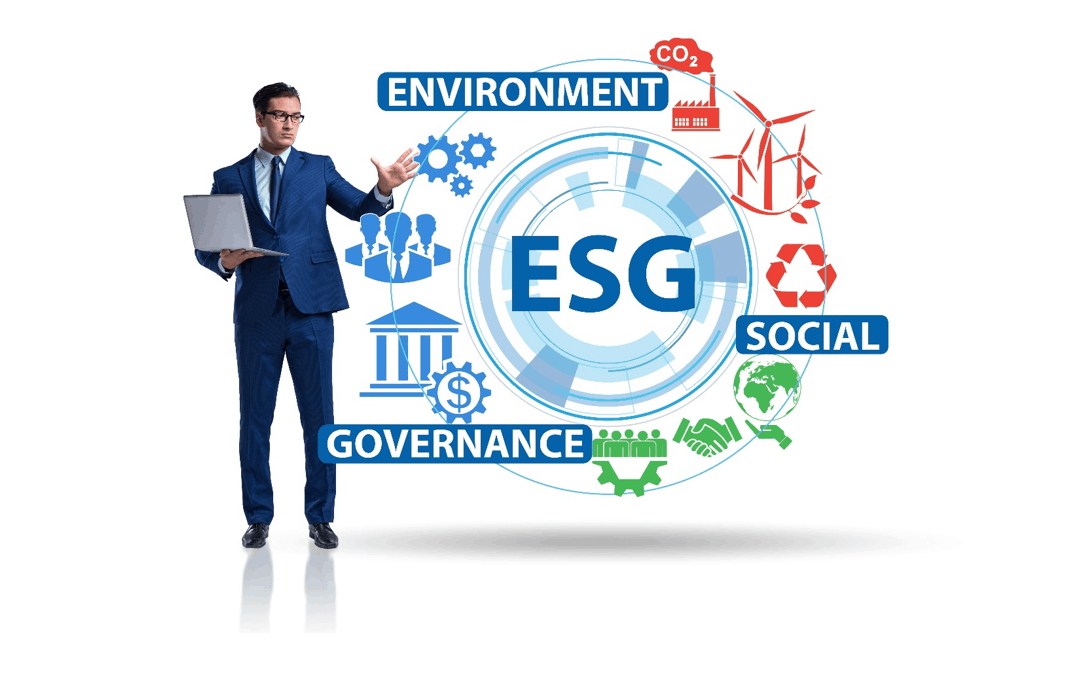In today’s rapidly changing business landscape, companies are increasingly under pressure to prioritize environmental, social, and governance (ESG) compliance. Not only is it the right thing to do for the planet and society, but it can also have a significant impact on your company’s bottom line. In this blog post, we’ll explore how implementing ESG compliance solutions can not only ensure that your business is operating ethically and sustainably but also drive financial success in the long run.
Introduction to ESG Compliance What is it and Why is it Important?
ESG compliance, or Environmental, Social, and Governance compliance, is a set of standards and regulations that companies must adhere to in order to ensure sustainable and responsible business practices. These three factors – environmental, social, and governance – encompass various aspects of a company’s operations that have an impact on the environment, society, and its stakeholders.
Environmental factors refer to the impact of a company’s operations on the natural world. This includes issues such as pollution control measures, resource conservation efforts, reduction of carbon emissions, waste management strategies, and more. Social factors relate to a company’s interactions with its employees, customers, communities in which it operates in terms of fair labor practices, diversity and inclusion policies, community development initiatives, human rights protection measures etc. Governance factors focus on the internal structure of a company such as board composition and independence from management influence.
The Impact of ESG Compliance on Company Performance
ESG compliance has become a buzzword in the corporate world, with more and more companies realizing the importance of environmental, social, and governance factors in their operations. ESG stands for Environmental, Social, and Governance – three key areas that have a significant impact on the long-term success of a company. In recent years, there has been a growing emphasis on ESG compliance as investors, customers, and stakeholders demand more transparency and accountability from corporations.
But what exactly is the impact of ESG compliance on company performance? How does it affect the bottom line?
Firstly, companies that prioritize ESG compliance are likely to have better financial performance. Studies have shown that businesses that focus on sustainability and ethical practices tend to outperform those who do not. This can be attributed to several factors such as cost savings from energy efficiency measures or waste reduction initiatives. Additionally, companies with strong ESG policies also have lower risk profiles which are attractive to investors.
Secondly, ESG compliance can enhance a company’s reputation and brand image. In today’s socially conscious market, consumers are becoming increasingly aware of the impact their purchasing decisions have on society and the environment. As a result, they are more likely to support businesses that align with their values and beliefs. By demonstrating commitment towards ESG principles through transparent reporting and sustainable practices, companies can build trust with their customers which can lead to increased sales and customer loyalty.
How ESG Compliance Solutions Can Benefit Your Company’s Bottom Line
ESG (Environmental, Social, and Governance) compliance is becoming increasingly important for companies across industries as consumers, investors, and stakeholders are placing a greater emphasis on sustainable practices. Not only does ESG compliance help to mitigate environmental and social risks, but it also has a significant impact on a company’s bottom line.
One of the main ways in which ESG compliance can benefit a company’s bottom line is by reducing costs. By implementing sustainable practices such as energy-efficient operations or responsible waste management, companies can save money on resources and utilities. This not only leads to cost savings in the short term but also helps to future-proof the business against rising costs of resources and potential regulations.
Case Studies: Companies that have Successfully Implemented ESG Compliance Solutions
In recent years, there has been a growing trend towards implementing Environmental, Social, and Governance (ESG) compliance solutions in companies across various industries. This is due to the increasing demand from investors and consumers for businesses to not only focus on financial performance, but also their impact on the environment and society. As a result, many companies have recognized the importance of integrating ESG practices into their operations in order to remain competitive and sustainable in the long run.
Let’s take a look at some case studies of companies that have successfully implemented ESG compliance solutions and reaped the benefits:
1. Unilever: A global consumer goods company, Unilever has made significant strides in its sustainability efforts by setting ambitious targets for reducing its environmental impact. The company has invested heavily in renewable energy sources, reduced waste generation through recycling initiatives, and improved water management practices. As a result of these efforts, Unilever has not only achieved its sustainability goals but also saved millions of dollars annually.
2. Microsoft: The tech giant has taken a proactive approach towards addressing social issues such as diversity and inclusion within its own workforce as well as promoting human rights throughout its supply chain. Microsoft also leads in terms of energy efficiency with all its data centers running on 100% renewable energy sources. These efforts have not only earned them positive recognition but have also contributed to cost savings.
3. Patagonia: Known for its commitment to environmental conservation and social responsibility, outdoor clothing company Patagonia implements sustainable production processes and fair labor practices throughout its supply chain. Their focus on using recycled materials for their products has not only reduced their carbon footprint but also attracted environmentally conscious consumers who are willing to pay a premium for sustainably made products.
4. Novo Nordisk: As one of the largest pharmaceutical companies globally, Novo Nordisk takes ESG compliance seriously by incorporating ethical principles into all aspects of their business operations. They prioritize employee well-being, invest in research and development for sustainable healthcare solutions, and have implemented responsible marketing practices. This has not only improved their reputation but also contributed to financial success with consistent growth in revenue.
Key Components of an Effective ESG Compliance Strategy
The concept of Environmental, Social, and Governance (ESG) compliance has gained significant attention in recent years as companies strive to become more socially responsible and sustainable. ESG compliance refers to a company’s commitment to meet certain environmental, social, and governance standards set by regulatory bodies or industry associations. A strong ESG compliance strategy is essential for companies looking to not only meet these standards but also thrive in today’s rapidly changing business landscape.
In this section, we will discuss the key components that make up an effective ESG compliance strategy. These components are crucial for any organization looking to integrate sustainability into their operations and reap the benefits that come with it.
1. Clear Goals and Objectives: The first step towards developing an effective ESG compliance strategy is setting clear goals and objectives that align with your company’s values and mission statement. These goals should be specific, measurable, achievable, relevant, and time-bound (SMART). This will provide a roadmap for your company’s sustainability efforts and help you track progress over time.
2. Strong Leadership Commitment: Effective ESG compliance strategies require buy-in from top-level management. Leaders must demonstrate a genuine commitment to meeting sustainability goals by incorporating them into the company’s overall business strategy. This includes allocating resources towards sustainability initiatives and holding themselves accountable for achieving targets.
3. Robust Policies and Procedures: To ensure consistent adherence to ESG standards across all levels of the organization, it is vital to have well-defined policies and procedures in place. These should cover areas such as environmental impact reduction strategies, supply chain management practices, diversity and inclusion policies, ethical business practices guidelines etc.
4. Regular Monitoring and Reporting: It is essential to regularly monitor progress towards meeting your company’s ESG goals through data collection and analysis. This can include tracking key performance indicators (KPIs), conducting audits or assessments of processes related to each component of ESG compliance, obtaining feedback from stakeholders etc. Additionally, transparent reporting of ESG performance to stakeholders is crucial for maintaining accountability and building trust.
Top 5 ESG Compliance Solutions to Consider for Your Company
As the importance of environmental, social, and governance (ESG) factors continues to grow in the business world, companies are increasingly seeking out ESG compliance solutions to improve their sustainability practices and meet regulatory requirements. These solutions not only help companies fulfill their societal responsibilities but also have a significant impact on their bottom line. In this section, we will explore the top five ESG compliance solutions that every company should consider for sustainable growth.
1. Environmental Management Systems (EMS)
An EMS is a set of processes and practices designed to manage an organization’s environmental impacts effectively. It helps companies identify potential hazards and risks associated with their operations and implement strategies to reduce or eliminate them. By implementing an EMS, companies can improve resource efficiency, reduce waste generation, lower energy consumption, and decrease carbon emissions. This not only contributes to environmental sustainability but also leads to cost savings through improved efficiency.
2. Social Impact Assessment
A social impact assessment (SIA) is a process that evaluates the potential social consequences of a proposed project or activity on local communities and stakeholders. Companies can use SIAs to identify any negative impacts on human rights, labor conditions, health and safety standards, as well as positive impacts like job creation and community development initiatives. By conducting an SIA before undertaking new projects or expanding existing ones, companies can proactively address any potential issues while building strong relationships with local communities.
3. Corporate Social Responsibility (CSR) Reporting
CSR reporting involves publicly disclosing a company’s economic, environmental,and social performance metrics alongside its financial results. This enables stakeholders such as investors, customers,and regulators to evaluate the company’s overall sustainability efforts transparently.This level of transparency builds trust in the company’s brand,reduces reputational risk,and attracts socially responsible investors who prioritize investing in companies with strong ESG credentials.
4.Ethical Supply Chain Management
In today’s globalized economy,a company’s supply chain can significantly impact its ESG performance. Ethical supply chain management involves considering the social and environmental impacts of sourcing materials,manufacturing,and distribution processes.Companies can mitigate risks by implementing ethical standards for their suppliers and conducting regular audits to ensure compliance.These efforts not only improve a company’s ESG compliance but also foster a positive brand image and customer loyalty.
5. Governance and Compliance Training
Effective governance is crucial for maintaining ethical business practices, transparency,and accountability. By providing training on ESG regulations, policies, and best practices to all employees, companies can ensure that everyone is aligned with their sustainability goals. This helps in creating a culture of compliance within the organization while reducing the risk of non-compliance penalties.
Addressing Common Challenges and Roadblocks in Implementing ESG Compliance
As companies strive to become more socially and environmentally responsible, implementing ESG compliance measures has become increasingly important. However, this process can be met with various challenges and roadblocks. In this section, we will discuss some of the common obstacles that companies may face when implementing ESG compliance solutions and how they can overcome them.
Conclusion: The Key to Unlocking Success Through ESG Compliance Solutions
In today’s business landscape, companies are facing increasing pressure to align their operations with environmental, social, and governance (ESG) standards. The growing awareness of sustainability and ethical practices has led investors, consumers, and regulators to demand more transparency and accountability from businesses.
As discussed in this article, implementing ESG compliance solutions can have a transformative impact on a company’s bottom line. By integrating ESG into their strategies and operations, companies can not only meet the expectations of stakeholders but also drive long-term success and profitability.
One key takeaway is that ESG compliance should not be viewed as an added expense or burden for businesses. Instead, it should be seen as an opportunity to identify areas for improvement and enhance overall performance. By conducting thorough assessments of their current practices and identifying gaps in compliance with ESG standards, companies can make targeted changes that will ultimately lead to cost savings, increased efficiency, and improved reputation.





+ There are no comments
Add yours